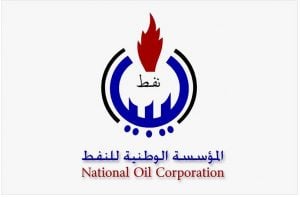By Sami Zaptia.

London, 12 July 2020:
Libya’s oil exports and production has been blockaded again, the National Oil Corporation (NOC) confirmed today. It announced that it has declared force majeure again on all its oil exports. It condemned the renewed blockade and blamed the UAE for being behind it.
The NOC had reported that potential lost revenues in the last 175 days have reached US$ 6.74 billion due to the oil blockade.
The US reaction
Meanwhile, reacting to the news, the U.S. Embassy said it regrets foreign interference against Libya’s economy, but unlike the NOC, it did not name the interfering foreign state.
The U.S. Embassy statement said that ‘‘After several days of intense diplomatic activity aimed at allowing the National Oil Corporation (NOC) to resume its vital and apolitical work as a way of defusing military tensions, the U.S. Embassy regrets that foreign-backed efforts against Libya’s economic and financial sectors have impeded progress and heightened the risk of confrontation’’.
It added that ‘‘incursions by Wagner mercenaries against NOC facilities, as well as mixed messages conceived in foreign capitals and conveyed by the so called Libyan National Army (LNA) on July 11, hurt all Libyans striving for a secure and prosperous future’’. It did not name the foreign capitals.
On the deal struck to allow oil exports to resume which involved more transparency of how Libya’s oil money is spent, the U.S. Embassy said that ‘‘Illegal obstruction of the long-overdue audit of the banking sector further undermines the desire of all Libyans for economic transparency. These disappointing actions will not deter the Embassy from its commitment to work with responsible Libyan institutions, such as the Government of National Accord (GNA) and the House of Representatives (HOR), to protect Libya’s sovereignty, achieve a lasting ceasefire, and support a Libyan consensus on the transparent management of oil and gas revenues.’’ The implication is that the U.S is now dealing with Ageela Salah as head of the HoR and Khalifa Hafter is being singled out as the obstructer.
The statement did put out an olive branch by adding that ‘‘The door remains open for all who lay down weapons, reject foreign manipulation, and come together in peaceful dialogue to be a part of the solution’’, before warning that ‘‘however, those who undermine Libya’s economy and cling to military escalation will face isolation and risk of sanctions’’.
‘‘We are confident the Libyan people see clearly who is prepared to help Libya move forward and who instead has chosen irrelevance’’, the statement concluded.
The NOC
Meanwhile in its statement, the NOC said it condemns unreservedly the renewed blockade on Libyan oil exports and calls for the states responsible to be held to account by the United Nations Security Council. It said it had been forced to declare force majeure on all oil exports from Libya to limit its contractual liabilities. It blamed Khalifa Hafter for the renewed blockade.
It said that Libyan oil exports ‘‘restarted on Friday 10 July with the loading of the oil tanker Kriti Bastion at Es Sider. However, Khalifa Hafter’s armed forces on 11 July ordered a halt to further exports, reversing their cooperative posture in negotiations. NOC has been informed that the instructions to shut down production were given to Khalifa Hafter’s armed forces by the United Arab Emirates.
This is gravely disappointing, especially following repeated statements by very senior representatives of the UAE last week in support of international efforts to restart oil production in Libya. Wagner and Syrian mercenaries now occupy Es Sider oil port and Wagner and Sudanese mercenaries are camped within the vicinity of the Sharara oil field, preventing Libyan oil from flowing’’.
The NOC urged all mercenaries to withdraw from Libyan oil facilities.
“We appreciate greatly the efforts of the United Nations, and the US to restart Libyan oil production and avert an escalation in the conflict,” said NOC Chairman Mustafa Sanalla. “If these efforts fail, as it appears they will, there must be consequences for the actions of the handful of states that are undermining the rules-based international order and destroying Libya. They pose a grave threat to Libyan and global security.”
“NOC’s position during the negotiations was clear: it supports all measures to bring transparency to state financial arrangements, and it opposes any that undermine Libyan sovereignty. The renewed blockade demonstrates the urgent need for moves to improve financial transparency to be accompanied by reform of security at oil installations.”, concluded the NOC statement.
Khalifa Hafter’s LNA demands
Meanwhile, the spokesman for Hafter’s LNA, Ahmed Mismari, said that the opening of oil ports is limited to allowing the transportation of a stored oil contracted for sale before the closure so that the facilities are not affected by the length of storage period.
He said that this move was within the framework of cooperation with the international community and friendly countries that requested it, but that the ports and oil fields remain closed until the demands of the Libyan people are fulfilled.
He said negotiations are still ongoing and that there will be no possibility of opening if the demands made by some Libyan tribes are not met.
He said these demands are that an account is opened in which oil revenues are deposited through a transparent mechanism, with international guarantees for the equitable distribution of these oil revenues to all the Libyan people in all cities and regions. He also demanded that a transparent mechanism with international guarantees is set up for spending, that include a rule that revenues do not go to finance what he called terrorism and mercenaries.
He also reiterated the demand for an audit of the Central Bank of Libya in Tripoli, to reveal how and oil revenues have been spent over the past years.







